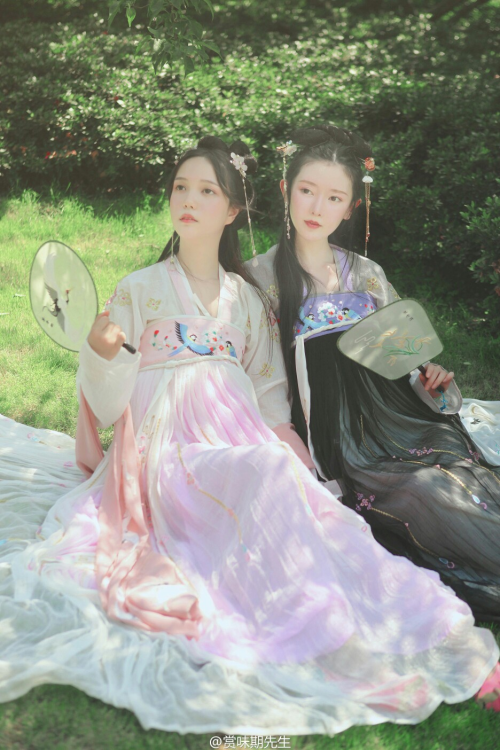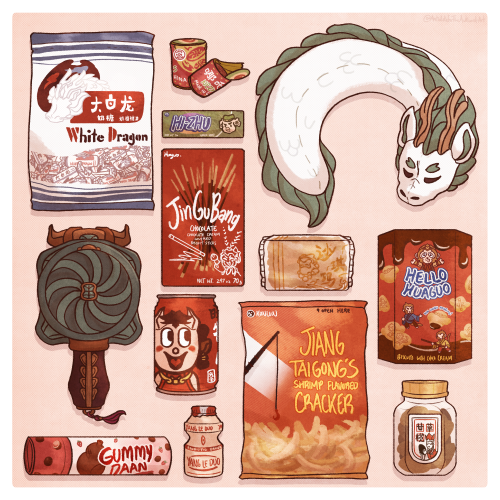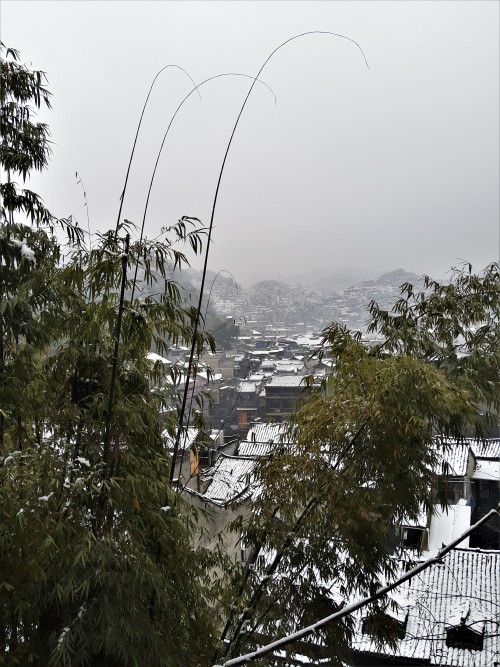lia-kotik-blog
начинающая китаистка, профессиональный котеночек
52 posts
Latest Posts by lia-kotik-blog






Whisper of the Heart 耳をすませば 1995 | dir. Yoshifumi Kondō















上海外灘 Shanghai bund
Hello! Do you happen to have a master post of all of your asks/posts anywhere? Just to help me navigate! ^^
Hi, thanks for the question! (Image via duitang)

For all my own posts, please see my China tag (that’s the tag I use for my original posts).For navigation via tags, my Tags page has links to common & useful tags on my blog. I’ll be updating the Tags page and this Masterpost as needed ^^.
Ziseviolet’s Replies Masterpost, Part 1 (Part 2):
Hanfu Terms:
What is Hanfu?
Guide to the different types of Hanfu
Hanfu names
My favorite Hanfu style - Part 2
Top 10 most popular Hanfu styles of 2018
Unisex Hanfu
Formal Hanfu
Difference between Ru & Shan
Banbi (half-sleeve jacket)
Bijia (sleeveless jacket)
Zhaojia (men’s Bijia)
Difference between Bijia & Banbi
Daxiushan (large-sleeve robe) - Pt 2
Difference b/w Beizi/Daxiushan/Dachang
Yuanlingpao (round-collar robe) - Pt 2 / 3
Difference b/w Tang & Ming Yuanlingpao
Hezi (chest undergarment accessory)
Weichang (short outer skirt)
Doupeng (cloak/cape)
Parallel/straight collars
U-collars (Tanling)
Aoqun & Pipa Xiu (pipa sleeves)
Jian Xiu (arrow sleeves)
Winter Hanfu - Part 1, Part 2
Casual/adventurer type Hanfu (Shuhe)
Hanfu sleepwear
Mourning Hanfu (Sangfu)
Burial Hanfu (Shouyi)
Waist-high Ruqun from Wei/Jin dynasties
Identifying Hanfu in a photoset
Chinese armor
What does Dunhuang style mean?
Hanfu History:
Did Hanfu exist after the Han dynasty
Comparison/charts of Hanfu from different dynasties
“Left-over-right” rule of crossed-collar Hanfu - Pt 2, Pt 3, Pt 4
Children’s Hanfu - Part 1, Part 2
What type of Hanfu would old women wear
Commoner’s Hanfu - Part 2
Poor people’s Hanfu
Hanfu and cleavage - Part 2
Han dynasty Ruqun & footwear
Three Kingdoms period Hanfu
Northern & Southern dynasties Hanfu
What Mulan would’ve worn
Tang dynasty emperor’s Hanfu
Was Daxiushan restricted to royal ladies
What Hanfu did people wear in winter
Song dynasty Hanfu styles
Ming dynasty skirts
Ming dynasty summer Hanfu
Yuan/Qing dynasty Hanfu - Part 1, Part 2
Symbolism of Orange-Red and Turquoise color combination
Hanfu for empress/noblewoman
Differences b/w contemporary & historical Hanfu
Books & magazines on Hanfu - Pt 2, Pt 3
Wedding Hanfu:
What are the colors of wedding Hanfu?
Wedding Hanfu recs
Pictures of wedding Hanfu
Wedding Hanfu accessories
Manchurian vs Han wedding attire
Why couples both wear red even when it’s not the traditional color for certain styles
Modernized/Modified Hanfu:
Incorporating Hanfu styles in a modern way
Combining Hanfu & modern styles
Modified Hanfu shops recs - Pt 2
Men’s modified Hanfu shops recs
Websites that sell modernized Hanfu
Where to buy modernized Hanfu
Modified Hanfu shops in the West
Identifying Chi Xia’s modernized Hanfu
Hanfu Accessories:
Pibo (long scarf) - Part 2
Tuanshan (rigid fan) - Pt 1, Pt 2, Pt 3, Pt 4
Difference b/w Tuanshan & Folding fan
Jinbu (waist ornament) - Part 2
Hebao (purse) - Part 2
My tag for Chinese hats/headgear
Weimao (veiled hat) - Part 1, Part 2
Weimao (veiled hat) Taobao Recs
Tiger hats
Douli (conical hat)
Yingluo & Xiangquan (necklaces) - Pt 2
Traditional Chinese earrings
Meaning & History of Jade
Bangshoudai (hand wraps) & Huwan (wrist guards) - Pt 1, Pt 2, Pt 3, Pt 4
Panbo (strings to tie up sleeves)
Miansha & Mianlian (Veils) - Part 2
Nail guards - Part 2
Hanfu Shoes
Hanfu boots (xue)
Hu Ban (ritual tablet)
Hanfu Hair Accessories:
Names of Chinese hair ornaments
Shop recs for hair accessories
Hanfu hair accessories
Fabric flower hairpins for Hanfu
Ronghua (velvet flowers) - buy & make
Hair accessories for fine hair
Phoenix crowns (Fengguan)
Lotus crowns
Miao silver hair accessories - Pt 1, Pt 2
Huasheng (forehead ornament)
Hairpin styling question
Fasheng (hair rope) & fakou (hair buckle)
My tag for Chinese hats/headgear
Jewelry boxes for hair accessories
Hanfu Hairstyles:
Hanfu hairstyle tutorials
Traditional hairstyles
My favorite hairstyle
Pre coming-of-age ceremony hairstyles for Han girls
Looped hairstyles in “The Empress of China”
Tang dynasty pinned peony hairstyle
Ming dynasty hairstyles
Dynasty with long loose hairstyle
Did ancient Chinese people have bangs
Half-up half-down hairstyles
Short hair and Hanfu
Simple hairstyles for shoulder-length hair
Makeup:
Huadian (forehead decoration) - Pt 1, Pt 2, Pt 3, Pt 4, Pt 5
Did men wear Huadian
Traditional Chinese makeup ingredients
Tang dynasty lip makeup
What makeup is used to replicate traditional makeup styles
Men’s Hanfu:
Hanfu styles for men
Men’s formal Hanfu
Types of men’s Hanfu
Resources for men’s historical hanfu styles
Pictures of men’s Hanfu
Dachang (open-fronted robe)
Zhiduo vs Daopao
Yesa/Yisan vs Tieli
Yichang vs Yesa/Yisan
Men’s Hanfu blog recs
Men’s Headwear/Hairstyles:
Historical hairstyles for men
Did men wear ponytails
Men’s hair accessories
Where to buy Xiao Guan
Men’s hairstyles & Guan
Guan (headdress) - Part 1, Part 2, Part 3
Guan & Mianguan
How bald men put up hair with a Guan
Fangjin (four-cornered flat cap)
Hanfu Undergarments:
Hanfu undergarments guide - Pt 2, Pt 3
Children’s Hanfu undergarments
Hanfu petticoats - Part 1, Part 2
Emperor’s undergarment for Mianfu
Dudou (chest undergarment)
Lower body Neiyi (underwear)
Zhongyi & Neiyi
Wearing Hanfu:
Tutorials on wearing Hanfu
How to put together a Hanfu outfit
Mixing hanfu from different dynasties
Plus-sized Hanfu - Part 1, Part 2
Girl wearing men’s Hanfu
Wearing Hanfu made for a gender you are not part of
Chest-high Ruqun for big-chested figures
Chest-high Ruqun skirt slippage
Is Hanfu hard to wear/sew
Is Hanfu comfortable to wear
Are chest-high styles restrictive for the chest - Part 1, Part 2
Hanfu renting/dressing up
Photo studios for renting Hanfu and taking pictures in Shanghai
Do people in China still wear Hanfu - Pt 2
Events in present-day China where people wear Hanfu
Making Hanfu:
Resources for sewing Hanfu - Pt 1, Pt 2
Hanfu sewing patterns - Pt 1, Pt 2
Buying Hanfu sewing patterns
Making Hanfu by hand - Part 2
Making Chest-high Ruqun
Making Hanfu with patterned cloth
Using shiny brocade fabric
Young people learning to sew Hanfu
Buying Hanfu & Hanfu Accessories:
My recs for places to buy Hanfu - Part 2
Where to buy Hanfu & Chinese hair accessories - Pt 1, Pt 2, Pt 3
Recs for places to buy hanfu accessories that aren’t based in China or have an English website
How to buy Hanfu on Taobao
International shipping on Taobao
Using a Taobao agent
Posts with links to where to buy Hanfu
Recs for non-Taobao Hanfu shops
Buying Hanfu in US/Washington DC
Hanfu shops in Shanghai
Where to buy Hanfu in Hong Kong
Hanfu shops in Singapore
Recs for colorful & flowy Hanfu
How to search for large-sleeved crossed-collar Ruqun on Taobao
Taobao shops that regularly carry larger sizes for men’s Hanfu
Shops that sell Hanfu w/natural fabrics
Where to find Hanfu for pageants
Hanfu from Aliexpress with right side over left
Hanfu brand Qinghuige’s Taobao page
Where to buy crane-print skirts
Where to commission high-quality screen-accurate Hanfu
How to find Hanfu for BJDs
Hanfu in films/dramas/animations, Pt 1 (more in Pt 2 of Masterpost):
Hanfu in television dramas
Q&A on cdrama “The Empress of China” is in Pt 2 of Masterpost!
Q&A on cdrama “The Rise of Phoenixes” is in Pt 2 of Masterpost!
Q&A on donghua “Modaozushi” & cdrama “The Untamed” is in Pt 2 of Masterpost!
Q&A on Mulan (including Disney’s animated & live-action Mulan films) is in Pt 2 of Masterpost!
Hanfu Revival Movement:
What direction I think the Hanfu Movement will take
The motivations for the Hanfu Movement
How I feel about the inconsistency of the Hanfu Movement
Comparison with Kimono and Hanbok:
Comparing Hanfu & Kimono (padding)
Comparing Hanfu & Kimono inspired figure skating costumes
Comparing Hanfu & Hanbok (resources)








chinese hanfub by 瞳莞汉服
Tips for Writing Sentences in a Foreign Language - for Beginners
Having studied 3 foreign languages at varying degrees of intensity and success - Japanese (I flatter myself to be fluent), Spanish (I can ask some simple questions and possibly crudely insult someone), French (I can say a few well-sounding phrases and then smile & nod when you respond). When beginning studies in languages, one of the most challenging things is to jump from the set beginner phrases from the textbook into creating your own sentences (gasp).
From my own language studies, plus experience TA'ing first year Japanese, I have a few tips for beginners on taking that leap into creating your own sentences. These will probably lean heavily on Japanese because that is the language I have the most experience with, but they are applicable to other languages too.

1. Just start making sentences!
It sounds simple, but it's the best way to start. Writer's block? Write about what you are doing, what you want to do, or write an introduction. Worried about speaking? Talk to yourself about what you are doing, what you want to do, or introduce yourself to yourself. You don't have to write or say anything world-shaking, but getting started is the first step. You can start by modeling sentences you've already seen. If you have an example textbook sentence, try modifying it to make your own similar sentence.
PS. Your sentences don't have to be perfect either. If you notice a mistake later, just go back and correct yourself!
2. Don't try to translate the phrase from your native language EXACTLY into your target language.
Languages don't always translate exactly, but also, sometimes your skill isn't advanced enough to say the same things you can say in your native language. If you don't yet know the appropriate grammar, vocabulary, or syntax of what you want to say, not being able to say exactly what you want can be frustrating and lead you to feel defeated (personal experience here). Instead, think of how to put the idea you have into a sentence using the knowledge you DO have.
If you have just started learning a language, it might be too much to directly translate "Entities should not be multiplied unnecessarily" (thanks, Ockham's Razor). Instead, why not try to translate "Simple is best"?
3. Avoid heading straight for the dictionary if possible when there is a word you don't know in your target language.
If you don't have the vocabulary word you need in a sentence, you might be tempted to go to the dictionary and look it up and throw it into your sentence. Whilst TA'ing first-year Japanese, this led to me puzzling and scratching my head over what the student was trying to say in their homework (hey, it's not my first language either!).
While using the dictionary to learn new vocabulary is obviously a must, when you are just starting out with sentence building it can also be a roadblock. When conjugating verbs is new to you, try using the verbs you do know to explain your idea. If you don't know a vocabulary word, selecting the right one for your context from a list of words with similar definitions can be difficult. If you don't quite know how to explain what you want to say, try rephrasing it until you can compose a less complicated sentence. Or break it into several sentences - you can work on complicated sentences when you're more comfortable with simpler ones!
Another bonus is that learning to explain what you want to say in your target language when you don't know the vocabulary is a helpful lifelong skill (that I still use today in Japanese). It can be frustrating to not be able to say exactly what you want to say in your target language at first, but if you just keep practicing you will get there.
4. Practice making sentences on the fly.
Writing allows you more time to think out the sentence, go back and make changes, and work things out more slowly. Speaking, on the other hand, is more challenging because you have to make your mouth form the words you are thinking, and do your best to make the sentence make sense to your listener. While writing sentences helps me to remember how to write hiragana/katakana/kanji and reinforces grammar (I learn best by writing it out!), speaking out loud helps your brain and your mouth learn to work together in your target language.
Don't have anyone to talk to? That's ok! Talk to yourself. Talk to your imaginary friends. Talk to your pet or your houseplant or your favorite figurine or stuffed animal. Just practice putting sentences together out loud, in real time. I promise you will notice improvement if you practice daily!
5. Don't be afraid of making mistakes!
But even if you do just throw in the dictionary word and your professor/study buddy/language exchange partner has to ask you what you were trying to say, that's ok! Making mistakes is ok! That's how you learn. Don't be afraid to be wrong, to be mocked and ridiculed.. ok, you most likely won't be mocked and ridiculed. (If you are, please find new language friends.)
Language learning is about making mistakes. Even now, after YEARS of studying and speaking and even doing interpretation/translation... I make mistakes (gasp). And it's ok. Ok, sometimes I think about the mistakes I have made in conversation in the middle of the night, but I'm working on that too. One day, you'll look back, and realize that agonizing over particles and which kanji to use and whether or not you would sound dumb when you were speaking to a native speaker is not the part you remember. You will remember when you could barely write your name in katakana, and realize that suddenly you can talk about your favorite hobby in exacting detail.
6. Don't practice in a vacuum.
Practicing sentences, written or spoken, on your own is fine! It's a great way to learn and improve your language skills. But I would recommend not spending all your time studying and practicing in a vacuum. There are lots of online ways to get your writing or speaking corrected (paid or not), and I would recommend taking advantage of them. I have gotten into the habit of using certain words that are too informal or that are not correct in the context I wanted to use them in, and it took a native speaker to point them out since I had become so used to using them (and so sure that I was right). So make sure to practice your language outside of your own head, and you will be able to improve even more.
So, what next?
Get out there and start making sentences! Write them, say them, and just practice. Don't stress about being perfect or making sentences that will change the course of history... instead, just start making sentences!
頑張ってね!
Some language learning exercises and tips
These are some of the activities I do. Maybe you'll find them helpful:
Write a mock dating profile for yourself. Describe yourself, list your hobbies and interests, hopes for the future, likes and dislikes, and the qualities you're looking for in a partner. Enjoyed it? Write one for your favourite character/OC.
Try to find a Youtuber who plays your favourite game and does commentary in your target language. I watch this guy a lot.
Describe locations in your favourite books, games, movies, TV shows etc. I like to wander the Hitman maps and write about the different areas, NPCs, and situations I observe.
Write a mock interview with your character/influential figure of choice.
Choose a fairy tale and write your interpretation of it in your target language.
When you're cooking, say what you're doing out loud as if you were talking to a studio audience.
Imagine your mutuals are coming to your city for a visit. Write up a lil guidebook for them describing places of interest. Write an itinerary to practice using the future tense and "first", "then", "after that", etc statements.
A chalk marker might be useful to you. I write important words and phrases that I'm having trouble remembering on my bathroom mirror. I just wipe them away with a damp cloth later.
Review books, albums, movies etc in your target language. Either write down your review or record yourself talking about it.
Crafting a language self-learning curriculum (sort of)
In my experience textbooks aren’t really the best way to learn after you’ve passed a certain level. They’re incredibly useful for beginners to learn grammar and vocab but after that they don’t offer a lot of activities that help you implement your learning in a way that reflects how you will actually use it.
It’s also near impossible to learn a language without help. Don’t isolate yourself just because you are self-learning rather than taking lessons. You NEED to talk to native speakers, both through text messages and actual verbal conversations. Colloquial conversations will differ greatly to formal an ‘correct’ ones spoken in a classroom.
1. The first step I suggest when creating a curriculum is to know what your goal is. Are you planning to move to the country the language is spoken in? Do you want to study as a way to better understand and appreciate the culture?
2. The next would be to gauge what level you are at through taking a language competency test. This is mostly so you have an idea of what you do know and what is considered the universal “next step” to give yourself a general direction to head towards.
3. Write down topics that interest you. For me these would be my career (marketing and digital media), my interests (video games, ttrpgs, fashion, history, horror novels), and important parts of my identity (my religion, my sexuality, my partner, my disability) etc. I didn’t bother writing down anything I already know such as how to talk about my family, how to talk about my country of birth, or hobbies commonly written in textbooks such as reading, swimming, camping.
4. Now come up with a list of general activities to cover your listening, writing, reading and speaking skills. Some examples are listed below:
Listening:
Watch 5 minutes of the news - recaps or weekly rundowns are great for this
Listen to an audio book for half an hour whilst cooking, cleaning, commuting etc.
Create playlists of music you actually like in your target language - you can further this by watching interviews about the artists or watching any live performances/streams they have done.
Writing:
Write 1-2 paragraphs about a chosen topic without any dictionary or vocab list aid, any words you cannot remember or do not know just write in your native language. Return with a dictionary to fill in these missing words after and ask a native speaker to make any corrections they can spot and finally rewrite everything with all the corrections (taken from Lindie Botes).
Write practice professional emails, blog-posts, product reviews, leave comments under Instagram posts etc. Make sure to learn how to write in different situations: how does writing an email to your boss differ from writing to your colleague? How are businesses addressed on review sites? What changes when writing a blog for fashion from one about politics? Learn these nuances.
Text your native speaker friends - simple but necessary
Reading:
Read and summarise a key news article from this week
Read a page from a book in your target language, highlight any unknown words to return to. Write out the sentences these words occurred in then the words on their own with their definition and create a new sentence using them. My key tip for this is not to be too ambitious with what you are reading. Don’t try to read an epic fantasy, instead focus on short stories and books for children aged around 5-10. As you improve you can read more complicated plots but just because you are familiar with the book in your native language does not mean you will understand what is going on.
Speaking
Record yourself leaving fake voice mails. This can be for a doctor’s appointment, inquiring about a job, asking to hangout with a friend etc. Keep it short and tone appropriate. This also gives you the opportunity to research phone etiquette in that culture.
Talk. To. Native. Speakers.
5. Combine your topics of interest with activities to give you something that should resemble almost a lesson plan.
Example:


Pronunciation Advice for Language Learners: How to Figure Out What You're Doing Wrong
The other day, my friend @calystarose was struggling with the phrase 出去吃 chūqùchī (go out to eat). This is a tongue twister for a lot of native English speakers. Even if we manage to get the individual vowels and consonant sounds correct, we often have a hard time stringing the words together.
I thought about the problem for a bit and then I told her to try saying it with her teeth clenched:
Why would that help?
Clenching your teeth forces you to hold your jaw still, and limits the amount of space your tongue has to move around. You can still make roughly the same sounds you were making before, but the new limitation forces you to make those sounds with smaller muscle movements.
Smaller movements reduce the amount of time and effort it takes to get from one syllable to the next.
.
Talking fast is more about efficiency than speed.
.

ɪᴘᴀ ᴋᴇʏʙᴏᴀʀᴅ ʀᴇꜰᴇʀᴇɴᴄᴇ ᴄʜᴀʀᴛ ᴍsᴋʟᴄ_ɪᴘᴀɢʀᴀᴘʜɪᴄ.ᴘᴅꜰ [sᴏᴜʀᴄᴇ]
When I first started taking French lessons, I had an easy time pronouncing words like "grand" and "robe." But then I ran into the word "livre," and suddenly I was getting tongue tied.
I realized my r was too far back in my throat. Too guttural.
This worked for a word like "grand" where the r is next to a g, a gutteral consonant. A consonant like v, on the other hand, is right at the front of the mouth, on the teeth.
If I wanted to say "livre" smoothly, I'd have to push my r further forward in my mouth, closer to that letter.
.
There's almost always more than one way to make your mouth form a particular vowel or consonant sound.
.
I noticed a while back that I say these letters t & d differently depending on whether I'm trying to speak English or Mandarin.
My t's and d's are little firmer in Mandarin than they are in English — my tongue is held stiffer, and the tip is more pointed when it comes into contact with my hard palate.
The funny thing is, I can't really hear a difference.
But I can feel the difference in my mouth when I shape the letters.
I never made a conscious decision to change how I say these consonants when speaking Mandarin — this is just something I naturally started doing when mimicking the recorded dialogue in my Duolingo audio lessons.
I realized it wasn't about getting the consonants to sound correct.
It was about what came after those consonants. The vowel sounds:
Chinese vowels are really different from English vowels. By changing how I shaped these consonants, I was setting up my mouth for a smoother transition into the next vowel sound.
.
Proper enunciation isn't just about making the right sounds come out of your mouth. It's also about transitioning from one sound to the next as fluidly as possible.
do you happen to know how to translate english names to chinese without it just being the phonetic spelling? a native mandarin speaker brought it up to me and now i'm wondering if it would seem more natural or if i should stick with phonetic
I'm assuming by phonetic spelling you mean translating English names to the closest Chinese equivalent with pronunciation? Like my name: Julia > 朱莉娅 (zhuliya)
I've talked about names A Lot™ with my Chinese friends because I often felt that way too, that this name was.. obviously not a native Chinese name lol So sorry ahead of time, this will be a long answer!!! I LOVE NAMES
Why I've stuck with a phonetic name: All my Chinese friends said the same thing: that my name isn't super unnatural, and that I shouldn't change it because they like it and immediately think of me whenever they see it because it's distinct.
((Of course some names are probably way more unnatural than mine, too, and I'm lucky that my English name converts well to many languages lol))
I tried letting new friends on Tandem/HelloTalk pick a name for me to see what they came up with (keeping 朱, because I'm attached to it) and tbh they were pretty, and probably more normal sounding, but none of them resonated with me. I've just associated myself with "red grass girl" 🤣🤣
I feel like there's nothing wrong with converting names to the closest phonetic equivalent!! My closest friends in China and Taiwan agree.
Side tangent #1
Once someone recommended switching to 丽 (li), but then another friend told me that one was too overused. Someone recommended 立 (I think?? If not, it was another character with this radical) once too, and a guy told me it gave off vibes of independence, but 2 girls told me it was way too masculine for a girl's name. Essentially, just because one Chinese person maybe said your name was too unnatural does not mean all Chinese people feel this way. In my experience you can ask 5 Chinese people about a name and you will get 5 different answers for whether it's masc/fem, what it's associated with, whether it's common, or whether it sounds foreign. One of my friends has even met a native Chinese 朱莉娅 before, with the same characters I use!
Side tangent #2
What about the reverse, what do we think of foreigners who have English names vs. foreign names? Obviously Xiran Jay Zhao is Chinese by her name and did not pick an English name, and I think this works!! Though I do see most foreign Chinese people pick names like John, Edward, Caroline... And what do we think when we see "Edward Pan"? (潘雲安, the singer for 告五人 btw) Some of us might think "lol why did they pick that name, that's obviously not their real name." And what do we think when they pick old-fashioned names like Eunice? (Yes, I've met one) If we pick an overtly standard Chinese name, will they think similarly? But then, if we have something that's completely non-standard, what will they think of that?? They might say "oh a foreigner" but... is that such a bad thing? It's tricky!
IN CONCLUSION (and to actually answer your question... 😅)
If your name doesn't convert well phonetically, or you think the phonetic translation is too odd, (or maybe you hate your English name lmao) here's what I'd recommend for finding alternatives:
Try picking a surname character (click for a list) that sounds similar to your English name, then pick a "normal" given name! Or vice versa, use a common Chinese surname and pick a given name that has the same initial consonant/syllable as your English name but is still "normal" sounding.
Here's some resources for picking characters:
Behindthename - pretty accurate from my experience!
Everyday Chinese - good video with a PDF below of 100 common characters used in boy/girl names
My Name is Andong - I like his suggestions a lot!
Shuoshuo - She's adorable and has good advice
Shuoshuo again - Here she critiques her students' names!
(You're also more than welcome to join my discord channel, where we have a whole section dedicated to discussing names!)
HelloTalk & Tandem are great places to bounce ideas off natives. They've been super friendly and open to picking names based on the meaning of my name, pronunciation of my name, or based on characters used in classic poetry or more hip characters.
If you pick a name on your own, run it by multiple native speakers. You never know if you might've picked a homonym for an insult or a rare idiom with a negative meaning!!!
Also something else to consider: what your friends actually call you. Do my closest friends calls me 朱莉娅? LOL NO I'm 朱朱 and 朱老师(lolz) And this is super cute, and a super normal nickname to be called in China. Literally there are a million 朱朱's lol
So maybe instead of worrying about "does it sound foreign" altogether, find one character (I'd suggest a surname or the first character of a given name) that you feel you can associate with yourself phonetically/visually/meaning-wise and then go by that in the double-repeat format of Chinese nicknames. I've been much happier since I started using 朱朱 on most platforms~~
Because I can't stop rambling, see some real life examples below:
杰里德 (Jared) youtuber who uses a phonetic name and he's very popular both here and on the Chinese version of youtube, even his Chinese girlfriend calls him 杰里德 and no one seems to care. And because it's distinct and "foreign" you can mention 杰里德 to Chinese person and they're like "the Canadian guy???" lol
Blondie in China (艾米饭) her real name is Amy, seems to have a fun but nonstandard Chinese name but she never uses it in her youtube videos so idk how people react to it!
毛毛虫 (Anastasia Koss) youtuber who complains sometimes that she gets weird comments about her name... which, she did name herself a bug, so that's not normal by Chinese name standards, but I wonder if she had picked something closer to her english name, would she get comments like that?
丹娜 (Danai) youtuber who seems to have gone with a direct phonetic translation, and tbh I think this is really cute!!
小马 (Arieh) youtuber who also has a weird name imo, since it's literally "pony" lol But tbh I don't watch him bc he bothers me so idk how people react to his name
There are also lots of phonetically-translated names for famous people and Chinese people don't seem to care??? Examples: Anne Hathaway (安妮 海瑟薇, ani haisewei), Obama (奥巴马, aobama), Romeo & Juliet (罗密欧/朱丽叶, luomiou/zhuliye)
Also for fun, here are some of my Chinese friends and their English names that I think are pretty good translations because they're partially phonetic~
佳琪 (jiaqi) > Jackie
培妤 (peiyu) > Penny
刘潇璇 (liuxiaoxuan) > Lexi
hey! what's the mandarin term for bisexual? does or have any cool etymology? are there any modern/youthful slang terms (such as P/T) for other lgbt people? just curious. thanks!
Bisexual is 双性恋, or just "双". 双 means two so it's basically the exact same meaning as "bisexual".
I guess since you asked, I'll just go through some basic/popular terminology real quick:
General terms:
同性恋 (tóng xìng liàn) = homosexual ; homosexuality
同志 (tóng zhì) = (lit.) comrade; (slang) gay/homosexual
You can add "男" (male) or "女" (female) in front of either of these two phrases to specify gay vs lesbian.
酷儿 (kù'er) = (loanword) queer
A lot of general modern LGBT terminology is borrowed from the west, i.e, "出柜" (chū guì ; to come out of the closet" or 弯 (wān; "bent"); 直 (zhí; straight).
Lesbian
女同性恋 (nǚ tóng xìng liàn)/女同(志) (nǚ tóng zhì)/ 拉拉 (lā lā) / 百合 (bǎi hé; "lily")
P = 婆 (pó; "wife)/femme
T = Tomboy/butch
H = "half", or 不分 ("doesn't separate") = a lesbian who doesn't differentiate these categories or doesn't identify with either P nor T
Gay
男同性恋 (nán tóng xìng liàn)/男同(志) (nán tóng zhì)
EDIT bc I forgot: 基友 (jī you3) meaning “gay partner” or “close samesex friend” (often for servicemen/firemen/police) is also a common term
零 (líng; 0); 受 (shòu ) = bottom
一 (yī ; 1); 攻 (gōng)= top
0.5, 10, 可攻可受 (kě gōng kě shòu), 兼备 (jiān bèi) = versatile
There's a lot of numbers involved. If you see stuff like 101 or 001 etc these are just referring to the "roles" in a threesome, etc. Numbers are sometimes also used for lesbians, where T = 1, P = 0, and H = 0.5, but I feel like this is less common. The thinking is a little binary in this regard but adherence to this ~structure~ is really case by case, just as it is in the west with tops vs bottoms in LGBT culture.
Within P/T/0/1/etc slang, there are also adjectives that may be added in front of these classifiers. Ex: 肌肉0 (muscular bottom); 公0 (manly bottom), 大母/母0或大母1 (effeminate bottom or effeminate top); 铁T (iron butch; basically super/manly butch)... It's all really arbitrary stuff, sort of like "twink" and "bear" and all that.
Bisexual: 双性恋, 双 (shuāng).
Pansexual: 泛性恋 (fàn xìng liàn) (泛 is a transliteration of "pan-" and has the same meaning of 'general' or 'extensive').
Nonbinary: 非二元 (fēi èr yuán) ("non" "binary" direct translation)
Genderqueer: 性别酷儿 (xìng bié kù'er) ("gender" "queer" direct translation)
[Anecdotally I would speculate that "pansexual", "nonbinary" and "genderqueer" are not popular self-designations as I have never seen them being used online outside of LGBT resource literature taken from the west]
Transgender: 跨性别 (kuà xìng bié) (跨 means "to step across" or "to straddle")
Asexual: 无性恋 (wú xìng liàn) (无 means "not to have" or "no"/"lacking")
Misc
第四爱 (dì sì ài; "the fourth love") sometimes gets brought up in discussion of LGBT terms (although by western standards, it's really completely unrelated). It sort of has a broad meaning but usually it just refers to pegging with a female top and male bottom. I think this might be more of a term from fiction because it's often brought up with other fictional concepts like Alpha and Omega.
A man in Inner Mongolia, China, comparing the sizes of goats at different ages.
English added by me :)
Update: New resources added!!
Over the past 2 days I've added new resources to my resources page! They're instagram/social media tutors but I've complied a mini list here. Some I like more than others, but I would recommend all of them to supplement your studies! Full reviews are on the page~
I also updated a few ratings and pricing for some of the resources as well, which I've made note of in the descriptions on the page.
Here are the new ones I added!
Zita Wong Chinese - insta, adorable and kind and progressive, great functional and colloquial vocab, real-life conversations and interviews with native and nonnative speakers in China
Leila Laoshi - non-native speaker who has translated chinese professionally, great vocab, fascinating lifestyle living in bali
Chilling Chinese - awesome podcasts, actually affordable membership
Sabine Hui Chinese - funny, functional & colloquial vocab
Learn Chinese with Jian - pronunciation guides & functional vocab
I always wondered why the Western Zodiac and the Chinese Zodiac were both called zodiacs if one was associated w astronomy and the other w time in general. Like what defines a zodiac that the word is only used to describe these two things? Looking up the word "zodiac" in the dictionary didnt help bc it only talked about the western one.
Well, I decided to look up the etymology for zodiac and it turns out it comes from the Greek for "circle of little animals." I love humans
Typing Pinyin Tones (macbook & iphone)
((I have apple products so I can't speak for windows computers or other brands. PLEASE add to this if you know how to do this for other products!))
Have you, like me, been typing everything into google translate to copy and paste the pinyin of words?
Have you, like me, been using the english keyboard holding button trick to get accents to pop up for à á ā and been using â for a 3rd/low tone because that was your only option??
NEVER AGAIN FRIENDS!
Typing Tones on an iPhone
First, you must have a pinyin-based Chinese keyboard on your phone. I'm assuming if you're learning Chinese you probably already have this?? So I'm skipping that part.
Go to the place where you want to type the pinyin and switch to your pinyin chinese keyboard
Hold the vowel you want and above it, the 4 tones will pop up
Slide your finger over to the on you want and let go (see image below)
That's it?? You now have pinyin and the suggestions for characters will go away!!

Typing Pinyin on a Macbook Computer
This is a bit trickier, bear with me.
Go to Settings/System Preferences
Go to Keyboard > Input Sources
Hit the little plus sign

4. Hit ABC - Extended and then hit "add"

Okay, you now have access to all four tone marks you need! You just need the codes for how to type it! These are the codes, you type these before any vowel to get the tone you want.
Option⌥ + a = 1st/high tone (ā)
Option⌥ + e = 2nd/rising tone (á)
Option⌥ + v = 3rd/low tone (ǎ)
Option⌥ + ` (just below escape key) = 4th/falling tone (à)
Note: for ü with an accent, you can use the above codes + v (e.g. ⌥ + a + v = ǖ)
If you ever forget, you can go up to your language input at the top header by the bluetooth/battery buttons and click "Show Keyboard Viewer." This will show you all the keys and when you press and hold Option⌥, it will show you all the possible key combinations (plus all the other features on this extended keyboard, it has quite a bit compared to the regular one!!)

Hope this was helpful!!! I'm so excited that I never have to go back and forth from google translate ever again :D
A compilation of people from a few of the 56 official ethnic groups in China wishing everyone a happy Duanwu (Dragon Boat Festivial) from 2021.
song: 半生雪 - 是七叔呢
English added by me :)
看電視劇學中文:【開端】 第三集 【2/2】
這是第二部分,來自:【開端】 第三集 20:00-40:00 // 第一部分在這裡 你們可以在Youtube看:这里 看電視劇學中文Learn Chinese With a TV Series by Leila老師
單詞:(绿色=HSK4; 蓝色=HSK5; 紫色=HSK6)
反复 (-覆) / fǎnfù / repeatedly, over and over
药检 (藥檢) / yàojiǎn / drug test
惯 (慣) / guàn / to spoil
负担 (負擔) / fùdān / burden
从始至终 (從--終) / cóng shǐ zhì zhōng / from the start to the end
唯一/ wéiyī / only
相信 / xiāngxìn / to be convinced sth is true; to believe
交代 / jiāodài / to hand over; to explain; to brief (someone)
达成 (達-) / dáchéng / to accomplish
共识 (-識) / gòngshí / consensus
插曲 / chāqǔ / interlude (music); episode
必然 / bìrán / inevitable
炸药 (-藥) / zhàyào / explosive material or charge
痕迹 (-跡) / hénjì / mark, trace
倒计时 (-計時) / dàojìshí / countdown
装置 (裝置) / zhuāngzhì / device; to install
眼皮底下 / yǎnpídǐxia / right before one's eyes
资料 / zīliào / material, resources
人际关系 (-際關係) / rénjìguānxì / interpersonal relationships
不良 / bùliáng / bad, harmful, unhealthy
嗜好 / shìhào / habit
心理防线 (---線) / xīnlǐfángxiàn / psychological barrier
硬 / yìng / hard, stiff, firm, strong
性质 (-質) / xìngzhì / nature; characteristic
指使 / zhǐshǐ / to prompt, incite
套话术 (-話術) / tàohuàshù / testimony
依然 / yīrán / still; as before
指认 (-認) / zhǐrèn / to identify
采纳 (採納) / cǎinà / to accept
供词 (-詞) / gòngcí / confession; statement
残留物 (殘--) / cánliúwù / leftover, remains
检测 (檢測) / jiǎncè / to examine
薄 / báo / weak, thin, flimsy
没凭没据 (沒憑沒據) / méipíng méijù / no evidence (var. 无凭无据)
下面有句子:
我们会反反复复地过着一整天。We will repeatedly experience the same day.
准备药检。Prepare the drug test.
老张还是太惯着你了。 Mr. Zhang is spoiling you.
你有很重的心理负担。You have a heavy burden (in your heart/mind).
从始至终我没有向你做过自我介绍。This whole time (from start to finish) I never introduced myself to you.
对你来说,相信警察,诚实把交代问题是你的唯一的选择。For you, believing in the police and answering questions honestly is your only choice.
我们终于达成了共识。We finally reached a consensus.
公交车被引爆这才是必然。The bus exploding was inevitable.
你们是不是可以找到一些炸药的痕迹。 Could you find any trace of a bomb/explosive material?
倒计时装置是它的铃声。The countdown system is the ringtone.
在我们眼皮底下演这么一出,从目前掌握的资料来看两个人的人际关系简单。From what we see before us from the resources we've currently have, these two people have simple social histories.
没有不良嗜好。Don't have bad habits.
实际心理防线硬着呢。Really (her) psychological barrier is strong.
那可是完全不同的性质。That could be a completely different characteristic.
她指使你骗出了这个套话术。She incited you to lie on this testimony.
如果你依然不肯如实地告诉我们的话,我们最后只能采纳他指认你是案一的供词。If you still won't agree to honestly tell us (the truth), (then) we have no choice but to accept his identification of you as the case's only confession.
事故现场检测出了爆炸残留物。At the accident site, examine the explosion's remains/residue.
心理防线薄。Weak psychological barrier.
没凭没据什么关我。There is no evidence that it was related to me.
Period in 中文 🩸

月经 (yuè jīng) period
老朋友 (lǎo péng you) period (slang)
大姨妈 (dà yí mā) period (slang)
例假 (lì jià) menstrual leave (euphemism) , menstrual period
月经没来 (yuè jīng méi lái) to miss one’s period
来月经 (lái yuè jīng) to have a period
换… (huàn) to change, to exchange (sanitary towel/tampons/menstrual cup)
卫生巾 (wèi shēng jīn) sanitary towel /pad
姨妈巾 (yí mā jīn) sanitary towel (coll.)
卫生棉条 (wèi shēng mián tiáo) tampons
月经杯 (yuè jīng bēi) menstrual cup
月亮杯 (yuè liang bēi) menstrual cup
绞痛 (jiǎo tòng) cramps
痉挛 (jìng luán) cramps (med. term)
偏头痛 (piān tóu tòng) migraine
昏厥 (hūn jué) to faint
妇科 (fù kē) gynaecology
阴道 (yīn dào) vagina (med. term)
卵巢 (luǎn cháo) ovary (med. term)
荷尔蒙 (hé ěr méng) hormone
乳房 (rǔ fáng) breast (med. term)
乳房胀痛 (rǔ fáng zhàng tòng) tender breast
血 (xuè) blood
子宫 (zǐ gōng) uterus
心情变化 (xīn qíng biàn huà) change of moods
经前综合症 (jīng qián zōng hé zhèng) PMS (premenstrual syndrome)
更年期 (gēng nián qī) menopause
止痛药 (zhǐ tòng yào) Painkiller
热水袋 (rè shuǐ dài) hot-water bottle
~ My Chinese studygram ~

this post is meant to be a directory of every resource I come across for Mandarin, often referred to as Chinese or Standard Chinese. It will be a continuous work in progress so thank you for your patience! if you have any issues or things to add, please reply to this post!
info
history of the chinese writing system
“in mandarin chinese, we don’t say…”
language learning profile
playlist of samples
the languages gulper
wikipedia
Keep reading
Chinese Internet Slang
Numbers

1314: “For ever”, usually preceded by a phrase such as “I love you” or whatever. 1314 (pinyin: yīsānyīsì) represents 一生一世 “one life, one world” (pinyin: yīshēng yīshì).
233: “laughter" 233 (pinyin:èr sān sān) represents 哈哈哈 (pinyin: hā hā hā).
4242: “Yes” or “It is”, 4242 (pinyin: sìèr sì'èr) represents 是啊是啊 (pinyin: shì’a shì’a).
520: “I love you”. 520 (pinyin: wǔ'èrlíng) represents 我爱你 (pinyin: wǒ ài nǐ).
555: “(crying)”. 555 (pinyin: wǔwǔwǔ) represents 呜呜呜 (pinyin: wūwūwū) the sound of tearful crying.
666: “doing something really well” 666 (pinyin: liùliùliù) represents 溜溜溜 (pinyin:liùliùliù ).
7451 or 7456: “I’m angry”. 7451 (pinyin: qīsìwǔyī) or 7456 (pinyin: qīsìwǔliù) represents 气死我了 (pinyin: qìsǐ wǒle)
748: “Go and die!”, 748 (pinyin: qīsìbā):represents 去死吧 (pinyin: qùsǐba), the equivalent of “Get lost!”, or “Go to hell!”
88: “Bye bye” (goodbye). 88 (pinyin: bābā) represents “bye bye"
995: “Help”, “Save me!” 995 (pinyin: jiǔjiǔwǔ) represents 救救我 (pinyin: jiùjiù wǒ).
Chinese websites 🇨🇳[MASTERPOST]

Last time when I posted the list with my fav websites where you can practice reading in Chinese, so many of you liked it and shared it! I appreciate it so much… and decided to make something extra, add more websites I found useful during Chinese learning process.
~~~~~~~~~~~~~~~~ ♡ ~~~~~~~~~~~~~~~~
Reading in Chinese
♡ Mandarin Bean (news in Chinese, HSK 1-6)
♡ Chinese Reading Practice (stories, essays, legends, chengyu stories)
♡ The Chairman’s Bao (news in Chinese, HSK 1-6)
♡ HSK Reading (and more articles!)
♡ My Chinese Reading (stories, scientific, business/politics, history etc)
♡ BBC News in Chinese (for more advanced learners)
♡ + Baidu Baike (something like Chinese wikipedia)
Grammar and HSK websites
♡ Chinese Grammar Wiki (saved my as… I mean my life MANY times)
♡ HSK Online (perfect place to test yourself, learn new words and gain a lot of knowledge how HSK looks like)
Online courses
♡ Courses on edX
♡ Courses on Coursera (recommend these courses created by Peking University)
Online Dictionaries
♡ MDBG ♡ Yellow Bridge
♡ Pleco (APP) ♡ Bohan (for 🇵🇱 ppl)
YouTubers
Teachers:
♡ ShuoShuo Chinese
♡ Mandarin Corner
♡ Chinese Zero To Hero
♡ Everyday Chinese
♡ Learning Chinese through Stories
♡ Daily Zhongwen
♡ HSK Test Preparation and Practice
♡ SyS Mandarin
Chinese vloggers
♡ Elena Lin
♡ Nuria Ma
♡ Liziqi
♡ WenWei
Foreigners in/about China
♡ Blondie in China
♡ Weronika Truszczyńska (Polish vlogger, her shoots are incredible; there are English subs)
♡ Ychina
Online Bookstores
♡ Purple Culture
♡ Sinolingua
♡ ChinaBooks
♡ Mandarin Companion
Where you can watch Chinese drama/movies/cartoons?
♡ YouTube (try to type the Chinese title, high possibilities it will show up! fe. THEY have quite a lot of dramas ;>
♡ iQIYi
♡ Netflix -> Taiwan on Netflix + Movies from Mainland China on Netflix
♡ Little Fox Chinese
~~~~~~~~~~~~~~~~ ♡ ~~~~~~~~~~~~~~~~
♡ If you liked this post please like, share! ♡
You can also: ♡ follow me on Instagram
♡ and subscribe my YouTube channel

Roadtrip snacks and essentials
reading web novels/articles for traditional chinese mandarin language learners
if you’re like me and want to eventually make reading your primary way of learning chinese characters, you’ll notice that a lot of the resources online are using simplified characters. new tong wen tang (chrome; firefox) is a browser extension that will help you convert webpages between simplified and traditional chinese. and regardless of the writing system, another helpful extension to have is zhongwen (chrome; firefox), which adds the ability to hover over a chinese character and see a pop-up containing the pinyin and english translation of a word.
before enabling the two extensions (notice how everything is in simplified!):

after enabling new tong wen tang and zhongwen (text has been converted to traditional chinese and doesn’t interfere with zhongwen’s pop-up dictionary):

Some chinese resources (found in this article: https://kaohongshu.blog/2019/12/03/should-i-read-chinese-texts-above-my-level/
Where do I find suitable online reading resources?
Free online resources:
My Chinese Reading (all levels) *I’ve used this it’s great, especially as graded reading material that gradually increases in difficulty in a manageable way
Mandarin Bean (all levels)
HSK reading (all levels) *Just looked, seems good for finding graded reading material specific to HSK level
Chinese Reading Practice (all levels) *I’ve used this, also great for graded reading material that manageably increases in difficulty
Just learn Chinese (all levels)
The Marco Polo Project (advanced)
Mandarin version of the New York Times (advanced)
BBC news in Mandarin Chinese (advanced)
Chinese news from Deutsche Welle (advanced)
Project Gutenberg in Chinese (highly advanced)
An Annotated Collection of Digitized Chinese Texts for Students of Chinese Language and Culture (highly advanced) *I’m looking at this right now and a ton of useful material
i found these two quick tests that are supposed to estimate how many characters you know:
test one
test two
as the explanation for the second test explains, you should only click on a character if you know both the pronunciation and definition since it’s fairly easy to guess a character’s pronunciation. you can take both tests in simplified or traditional
according to these tests, i know somewhere between 2,800 and 2,900 characters! what about you?
(if you study japanese you can give these tests a try too just for fun!)
Hey did you know I keep a google drive folder with linguistics and language books that I try to update regularly
Reading rec list for chinese learners. This is not exhaustive, if you find stuff that works for you then go for it! This is also not perfect, you may find stuff a bit easier or harder is more ideal for you. (By "know" below I mean you recognize the word as familiar, have studied or looked it up at some point, and so if you need to look it up again in reading you will learn it longer term fairly easily because of the repeated exposure to it in reading).
Know ~500 words?
Mandarin Companion Graded Readers. I recommend the Sherlock one, and the Journey to the Center of the Earth one. All Mandarin Companion books are excellent for beginners though.
Pleco Graded Readers - I recommend The Butterfly Lovers. There are a lot of Pleco Graded readers though, so you can pick based on amount of unique words (some Graded readers on Pleco go up to 2000 unique words).
Know ~1000-1500 words?
Sinolingua Chinese Graded Readers. There are several, and I started with the 500 word one. They somewhat match up with HSK and I found them more challenging than the Mandarin Companion graded readers. They have a vocabulary list in the back of the book and footnotes to help you study. They are a good bridge to get you from graded readers to other materials. I found the 1000 and 2000 word book equally difficult.
Pleco Graded readers, which include readers from 1000-2000 unique words.
Start delving into manhua! If you're ready and feel like it! Easier manhua will be slice of life setting ones, and ones based on something you're already familiar with. So if you've watched the Untamed or read 魔道祖师, then the manhua will be easier for you. If you've watched The Lost Tomb Reboot, then try out the slice of life comedy manhua spin off 盗墓笔记重启日常向 https://m.ac.qq.com/comic/index/id/649452. My Story 他们的故事 is a gl manhua which is slice of life and easy to read, as is 19天. There's also more genre specific manhua which I waited a bit to read, but if you're familiar with the story they may be doable like 2ha's manhua and 破云 manhua.
Know ~1500-2000 words?
Start getting into easier novels. Suggestions include 活着 (anything by this author is often recommended to learners, I have not actually read anything by him yet), 小王子 (this was my first not-graded-reader novel I finished reading in chinese, it was a bit challenging, I used a english/Chinese copy so I could look up words occasionally), 笑猫日记: 会唱歌的猫 (I highly recommend this series of books, they're for kids and fairly straightforward, set in a city so decently useful words are used, with a lot of chengyu that's commonly used so they're worth learning, I read 2 of these novels), 他们的故事 by 一根黄瓜丝儿 (a bl novel that's first person, generally uses a lot of common daily life words, and is fairly straightforward, I've read half and it was the first real novel I tried to read in chinese). These novels can be tried earlier on if you're more willing to use a click dictionary, which is what I did (except for 小王子 since I had a print copy). 论如何错误地套路一个魔教教主 The Wrong Way to a Demon Sect Leader (a fairly easy wuxia bl read).
Also in general anything you've read before in a language you understand, is going to be easier to read in chinese than something brand new.
Feeling brave? Up for a challenge?
撒野 and anything by that author uses a lot of more everyday language and is an easier read than some other webnovels. 盗墓笔记 does not use particularly hard language outside of the tomb genre words which if you're reading then you need to look up and learn anyway eventually (the slang in it is a bit hard but also worth learning so the cursing etc trips you up less later in other stuff you read), if you've seen the show before its doable to read. Scum Villain Self Saving System is on the easier end of mxtx novels to read, especially if youre already familiar with the plot.
Know ~2000 words?
The same novels as before apply. But now you may need a dictionary a bit less. Stuff like 撒野 will now be a bit less difficult, still challenging. Now other novels will start to be doable as desired, if you're using a dictionary. So go have fun looking into whatever webnovels you're interested in.
(I made a list of difficulty ratings of various webnovels in my rec list tag, you may want to check out that list. A quick gadget though is like... 撒野 author is easier than 盗墓笔记 author, then mxtx, then priest (and tian ya ke and zhenhun are easier than silent reading and sha po lang), and poyun was higher on the difficulty scale, 2ha was fairly hard. Basically the more vocabulary or thicker the paragraphs, the harder it's gonna be. Or the less familiar you are with a given genre).
At ~2000 words or more I'd say reading with a click dictionary feels quite doable, although a slog if you pick a harder novel so gauge what feels an okay level for you personally to read. And if you feel like reading without a dictionary, you'll have to explore a bit to see what's comprehensible to you without one.






Winter in Fenghuang, Hunan